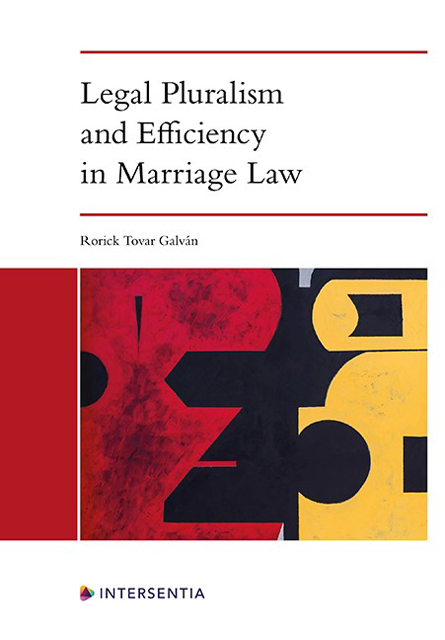Book contents
- Frontmatter
- Dedication
- Miscellaneous Frontmatter
- Foreword
- Preface
- Acknowledgments
- Contents
- List of Cases
- Introduction: Uncertainty and Inconsistency Surrounding the Determination of the Applicable Law in the EU Instruments on Matrimonial Issues
- Part I Economics As A Point Of Departure To Explain The Substantive Rules On Matrimonial Issues
- PART II Economics as a Point of Departure to Build a System of Conflict of Laws For Matrimonial Issues
- Conclusion: Certainty, Precision, Coherence, and Simplicity in the Determination of the Applicable Law
- Bibliography
- Index
- About the Author
Chapter 8 - Applicable Law in Absence of a Choice of Law Agreement
Published online by Cambridge University Press: 17 December 2022
- Frontmatter
- Dedication
- Miscellaneous Frontmatter
- Foreword
- Preface
- Acknowledgments
- Contents
- List of Cases
- Introduction: Uncertainty and Inconsistency Surrounding the Determination of the Applicable Law in the EU Instruments on Matrimonial Issues
- Part I Economics As A Point Of Departure To Explain The Substantive Rules On Matrimonial Issues
- PART II Economics as a Point of Departure to Build a System of Conflict of Laws For Matrimonial Issues
- Conclusion: Certainty, Precision, Coherence, and Simplicity in the Determination of the Applicable Law
- Bibliography
- Index
- About the Author
Summary
Applying foreign law entails costs for spouses and the administration of justice. Misinterpretations and the investment of more resources are expected in cases involving foreign legal provisions in comparison to domestic law. However, granting individuals the possibility to select the law governing their relationships also brings forth a number of advantages. Whether such benefits outweigh the costs is difficult to measure. But the fact that the number of states allowing the conclusion of choice of law agreements consistently grows, speaks volumes. The introduction of party autonomy in international contract and marriage law is probably the most prominent feature of modern national and international conflict of laws regulations.
Now it is time to discuss the applicable law in situations where the spouses have not made use of their freedom of choice. All arguments in the chapters above were praising the merits of party autonomy. However, no precise method to determine the applicable law in absence of a choice of law agreement was mentioned. This chapter is entirely devoted to this issue. First, some specifics about the goals pursued by gap-filling rules, and the conflict of laws provisions in general, are discussed. After that, the costs encountered by individuals involved in a relationship with an international element are analyzed. In this second section it is concluded that conflict rules – like default rules in substantive law – should also allocate transaction costs in a way that maximizes the surplus from the cooperation. The third and fourth sections are focused on the connecting factors applicable to contracts and marriages. After explaining the economic rationale behind the conflict rules, it is argued that the spouses’ first place of residence is the most appropriate connecting factor for the marriage, as it not only provides a high degree of legal certainty, but also reduces costs needed to get information about the content of the applicable law. The law of the place of conclusion of the marriage will be put forward as the subsidiary connecting factor for those rare cases where spouses have never had a common place of residence.
- Type
- Chapter
- Information
- Legal Pluralism and Efficiency in Marriage Law , pp. 209 - 244Publisher: IntersentiaPrint publication year: 2022



